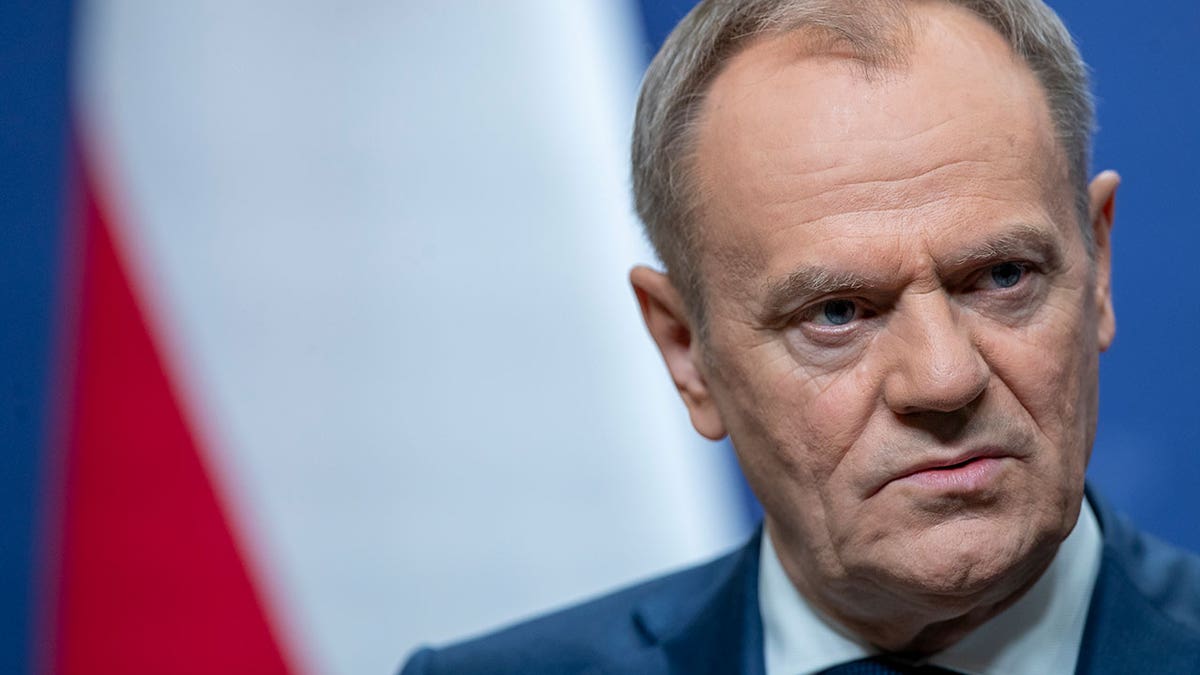Russia unleashes drone, missile attacks as Ukraine war enters third year
Fox News' Greg Palkot reports the latest from Kyiv.
- Polish Prime Minister Donald Tusk criticized Hungarian and Slovak foreign ministers for meeting with Russian Foreign Minister Sergey Lavrov during a regional forum in Turkey.
- Hungarian Foreign Minister Peter Szijjarto and Slovak Foreign Minister Juraj Blanár met with Lavrov during the Antalya Diplomacy Forum gathering.
- Lithuanian Prime Minister Ingrida Simonyte, who met with Tusk, called the meeting with Lavrov "a regrettable choice."
Polish Prime Minister Donald Tusk on Monday sharply criticized the Hungarian and Slovak foreign ministers for meeting with their Russian counterpart during a regional forum in Turkey.
Tusk said that meeting Russia's Foreign Minister Sergey Lavrov on the same day that Russian opposition leader Alexei Navalny was buried in Moscow was "not just an expression of good or bad taste."
"The issue of feasting on the day of Alexei Navalny’s funeral … is just another sign of the Hungarian government, which we find difficult to accept for moral and political reasons," Tusk told a news conference.
Hungarian Foreign Minister Peter Szijjarto and Slovak Foreign Minister Juraj Blanár met with Lavrov on Friday during the Antalya Diplomacy Forum gathering. Szijjarto posted details of their dinner on his social media profile.

Poland's Prime Minister Donald Tusk pauses as he speaks, during a news conference following his meeting with Lithuania's Prime Minister Ingrida Simonyte on March 4, 2024, at the government's headquarters in Vilnius, Lithuania. (AP Photo/Mindaugas Kulbis)
"Colleagues in Bratislava and Budapest prove once again that our opinions on certain issues are too different," Tusk said. "Certainly regarding the attitude toward Russia and the attack on Ukraine."
POLISH PRIME MINISTER TUSK SWORN IN, REPLACING CONSERVATIVE PARTY AFTER 8 YEARS
Lithuanian Prime Minister Ingrida Simonyte, who met with Tusk, called the meeting with Lavrov "a regrettable choice."
Central European countries are deeply divided over the Russian war against Ukraine and how to resolve the conflict. While Poland and the Czech Republic are united in staunch support for Ukraine, including arms deliveries, Hungary and Slovakia have sharply different views.

